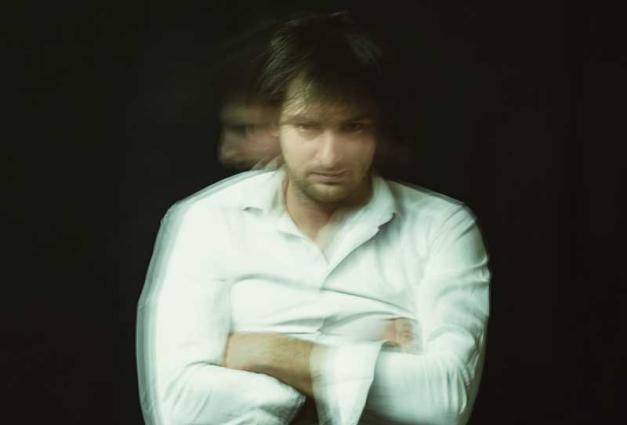You’ve probably known people who have gotten stuck in a repeated loop in a dating relationship—and maybe it’s even happened to you. They’re together. They’ve broken up. They’re back together again. No, they’ve split up. Now they’re giving it another shot…. What’s going on? Are certain types of people just more likely to get into this kind of on-again/off-again relationship?
In my previous research, I had tested whether people who fall into this cycle differ on any of the “Big 5” personality characteristics—extraversion, agreeableness, openness, conscientiousness, or neuroticism. I didn’t find that people in on-again/off-again relationships (what I’ll call “on-off” or “cyclical” partners for shorthand) differed on any of these personality dimensions from those who did not have a history of breakups and renewals (”non-cyclical partners”). But many people—including students, journalists, and fellow relationships researchers—kept asking, “it’s got be their personality, right?” So I wanted additional evidence.
For this study, my colleagues and I took a different approach. Rather than looking at personality characteristics, we focused on ways that people approach their relationships, what we called relationship dispositions. Relationship dispositions are ways in which people view the purpose and functioning of close relationships, such as their beliefs about how partners should act and how much intimacy there should be in a relationship.
To examine major relationship dispositions that might be related to on-off cycling in relationships, we first assessed attachment style. Researchers tend to measure people’s attachment style with two dimensions: attachment anxiety and attachment avoidance. Attachment anxiety pertains to people’s fears of being abandoned by their relationship partners; attachment avoidance pertains to people’s fears of being too close in a relationship.
These two sets of fears develop early in our lives based on our interactions with our caregivers, particularly our parents, and tend to be relatively stable across our relationships throughout life. Studies have found that people who are higher in attachment anxiety are more likely to have reconciled their romantic relationships. But, we thought that people higher in attachment avoidance might engage in on-again/off-again relationships to avoid becoming too close.
In addition to attachment, we also assessed destiny and growth beliefs about relationships. People with destiny beliefs think that relationships are either “meant to be” or not. In contrast, people with growth beliefs think that relationships can be improved with work and cultivation. Finally, we also assessed communal orientation—the degree to which people believe that partners should help each other without the expectation of repayment. Those with a higher communal orientation see their relationship more as a collective—as a “we.”
We surveyed more than 200 adults ranging in age from 19 to 66 who were currently in a romantic relationship. Their relationships varied from casually dating to married. We made sure that half of our sample was currently in an on-again/off-again relationship to allow us to compare cyclical and non-cyclical partners. The partners who were in an on-again/off-again relationship reported that they had gotten back together after breakups an average of almost three times on average.
So what did we find? Similar to previous research, on-off partners reported lower relationship quality compared to non-cyclical partners. They were less satisfied with their relationship, expressed greater uncertainty about the status of their relationship, and felt more relationship disillusionment.
But on-off and non-cyclical partners did not differ on any of the relationship dispositions we measured. For example, on-off partners were not more anxious, they did not hold greater destiny beliefs, and they did not have a less communal orientation than partners in non-cyclical relationships.
Yet, even if on-off and non-cyclical partners do not differ on any given relationship disposition, the ways in which the dispositions are associated with relationship quality might differ. However, we found few differences between on-off and non-cyclical partners here as well. Overall, the relationship dispositions were linked with relationship satisfaction, commitment, and uncertainty in similar ways for both types of partners. The few exceptions suggested that the relationship dispositions were more weakly linked to relational quality for on-off partners. For example, on-off partners who had higher growth beliefs did not have as much commitment as non-cyclical partners with similar levels of growth beliefs.
Overall, then, on-off and non-cyclical partners don’t differ very much in their dispositional approaches towards relationships or in the effects of these dispositions on their relational quality. This finding supports research suggesting that on-again/off-again relationships are created by the dynamics between the two partners. Relationship cycling has more to do with how the two partners interact and manage conflict as a couple than with their individual personalities or orientations toward relationships.
For Further Reading
Dailey, R. M., Zhong, L., Pett, R., Scott, D., & Krawietz, C. (2019). Investigating relationship dispositions as explanations for on-again/off-again relationships. Journal of Social and Personal Relationships. https://doi.org/10.1177/0265407519861156
Knee, C. R. (1998). Implicit theories of relationships: Assessment and prediction of romantic relationship initiation, coping, and longevity. Journal of Personality and Social Psychology, 74, 360–370. doi:10.1037/0022-3514.74.2.360
Mikulincer, M., & Shaver, P. R. (2012). Adult attachment orientations and relationship processes. Journal of Family Theory and Review, 4, 259–274.
Mills, J., & Clark, M. S. (1994). Communal and exchange relationships: New research and old controversies. In R. Gilmour & R. Erber (Eds.), Theoretical approaches to personal relationships (pp. 29–42). Hillsdale, NJ: Erlbaum.
René Dailey is an associate professor in the Department of Communication Studies at the University of Texas at Austin.




